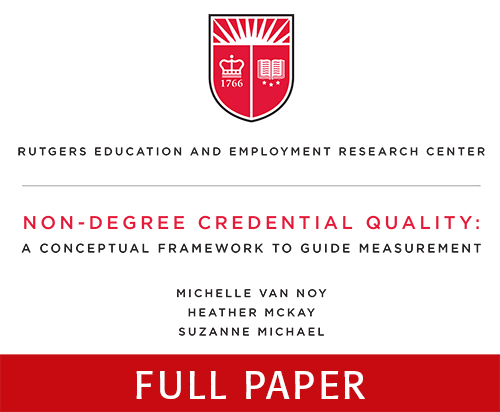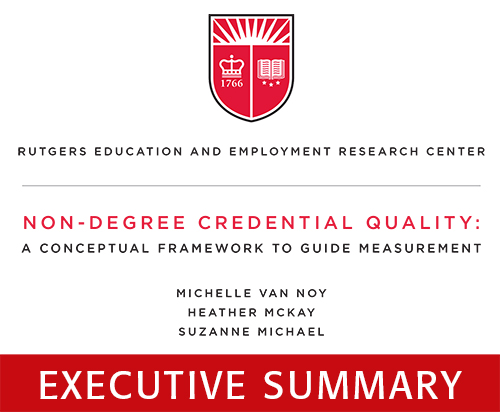The university remains open. For changes to schedules, including remote instruction and operations due to ongoing weather conditions, check the Rutgers–New Brunswick Operating Status page.

Making sense of the increasingly crowded market of non-degree credentials can be a challenge. A wide range of credentials, from industry certifications to badges and micro-credentials, are offered by educational institutions, private training providers, industry associations, and unions, among others.
Within the credential marketplace, there is no single set of standards for individuals, policymakers, employers, and educational institutions to evaluate the quality of non-degree credentials. A system is needed to measure quality and ensure these credentials do not offer false promises, particularly to individuals from marginalized groups who may be drawn to non-degree credentials for their potential to lead to employment and rewarding career pathways.
This paper, supported by the Lumina Foundation, outlines a broad definition of non-degree credential quality, which focuses on four key elements: credential design, demonstrated competencies, market processes, and outcomes of value. The framework provides recommendations for key stakeholders to promote the measurement of quality in non-degree credentials.
This project is supported by Lumina Foundation.
Publications
Read the press release: SMLR Report Urges Quality Controls for Non-Degree Credential Programs
Read the blog post: The time is right to ensure that all quality learning counts
Read the blog post: Today’s Landscape for Non-Degree Credentials
Presentations
- ACT Workforce Summit presentation slides – October 2018
- League for Innovation in the Community College presentation slides – February 2019
- National Association of Workforce Boards presentation slides – March 2019
- Garden State Employment and Training Association Annual Conference presentation slides - October 2019
Contact Us
Email: eerc@smlr.rutgers.edu




